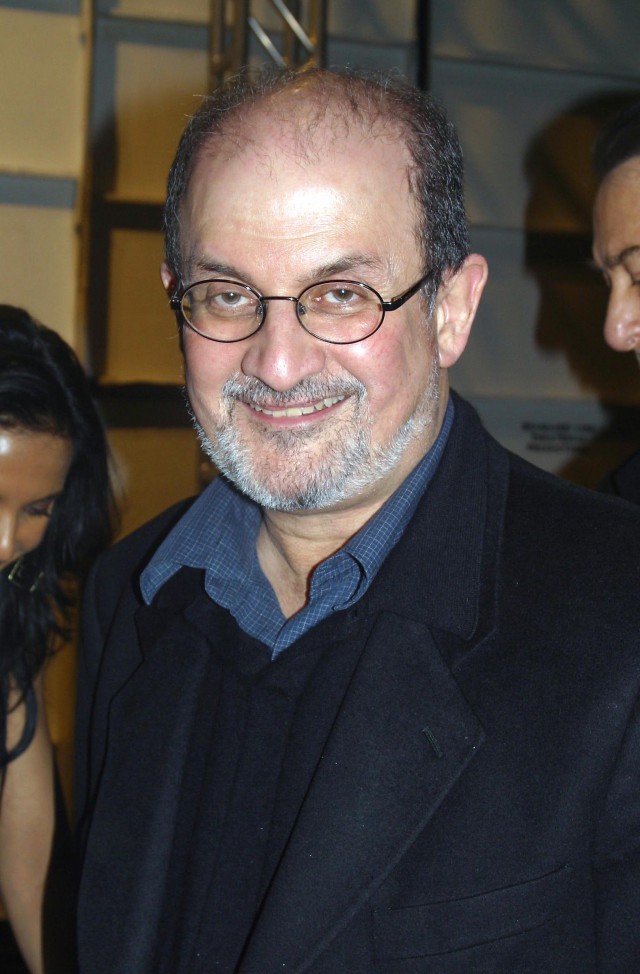
— The man whose writings put his life in danger proclaimed Tuesday that
the fiction of novels protects the world from the “fantasy” news that
dominates today’s media.
“The world has become so surrealist that it may be
that the surrealist of literature may be the best response to it,”
Salman Rushdie said.
Increasingly, he said, the news is filled with the
trivial happenings of pseudo superstars and the infidelities of
athletes and politicians. Neither newspapers nor television can resist
it, he said. “The news is no longer realistic. The world has become a
kind of fantasy.”
He admitted that when an American can communicate
with a Chinese friend via Facebook, “the novel is a slow cumbersome
thing, which is not the best way for us to get information.”
But he warned writers against getting caught up in
the transient news of the day. Rushdie told an appreciative audience of
3,000 in the
His speech was before a conference for international
educators. It has drawn 7,000 participants from nearly 100 countries to
discuss higher education on a global scale, international student
exchange and preparation of the next global leaders.
The nearly hour-long talk was often interrupted by
applause and laughter at his quips. “If I were going to start a
political movement, I would not call it a tea party; it makes one think
of mad hatters running about.”
Rushdie noted that because humans are the only
living creatures who tell their stories, “free expression is one of
those rights we all must have.”
Through his prose, Rushdie has challenged official
historical, political and religious doctrine. He spent years under
police protection after his fourth novel, “The Satanic Verses,” set off
a storm of protest among Islamic communities.
In 1989, the book prompted Iranian Ayatollah
Khomeini to issue a fatwa calling for Rushdie’s death. Because it can
only be lifted by the one who issued it, and Khomeini died decades ago,
it remains in effect today.
Initially, the death threat “shook me very deeply,”
he said. “For a long period I found it very difficult to think about
writing. Not for fear but for disappointment.”
After five years spent on “Verses,” he was crushed
that his total work was overshadowed by a group that didn’t like a
small part of his writings. Several countries banned the book,
including
A promise to write his next book — “Haroun and the Sea of Stories” — for his son helped lift his writer’s block.
“One of the great lessons of life is there are going
to be people who don’t like you or like what you say or what you
write,” he said. “I don’t care. The days of trying to explain myself or
apologize for myself are long gone. Here I stand. And at that point you
are free.”
Kill the writer? “What is read and thought, lives on.”
Rushdie, 62, who lived many years in
“Literature brings us into other worlds we are
distant from so that we feel ourselves in the skin of people and their
different languages and life experiences.”
———
(c) 2010, The Kansas City Star.
Visit The Star Web edition on the World Wide Web at http://www.kansascity.com.
Distributed by McClatchy-Tribune Information Services.














